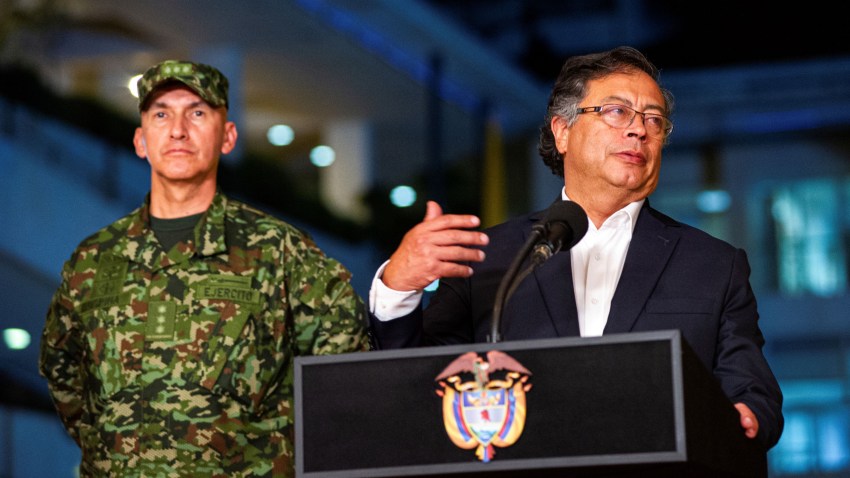The administration of Colombian President Gustavo Petro has embarked on a program of what it calls “total peace,” aimed at reducing violence through dialogue with armed insurgencies and criminal groups across the country. This focus on negotiated settlements is a welcome and necessary shift in strategy from the past five years, during which Bogota relied almost exclusively on the military to curb insecurity in Colombia.
That securitized approach failed to produce tangible results, as conflict worsened across the country. In the last half decade, armed groups have expanded and deepened their presence, while indicators of conflict such as displacement, massacres, targeted assassinations and forced confinement have all increased markedly. In fact, disillusionment with the inability of former President Ivan Duque’s administration to stem the tide of violence partly explains the overwhelming electoral support Petro received in violence-affected areas of the country, including along Colombia’s Pacific coast and the Amazon region in the south.
Thus far, Bogota is engaged in ongoing negotiations with the largest remaining leftist insurgency, the National Liberation Army, or ELN, and is set to open formal talks with the largest faction of so-called dissidents of the former Revolutionary Forces of Colombia, or FARC. The Petro administration has moreover reached out groups including the Gulf Clan, the largest organized criminal group, and several other smaller outfits. It has announced cease-fires with all FARC dissidents, though the monitoring mechanisms for those deals are still in construction, making it difficult to ensure that both sides comply, and running the risk of being too dependent on the good faith of armed groups.

